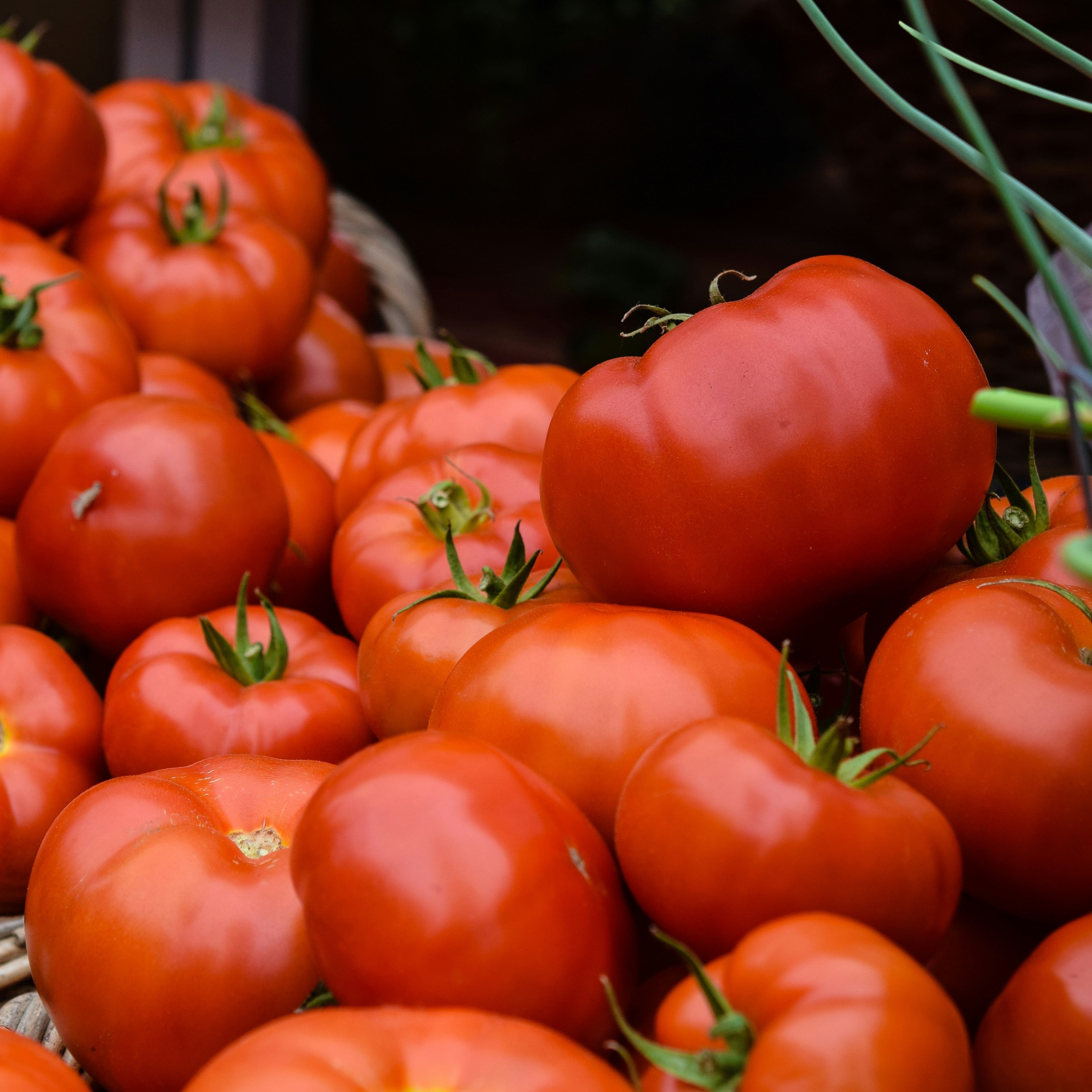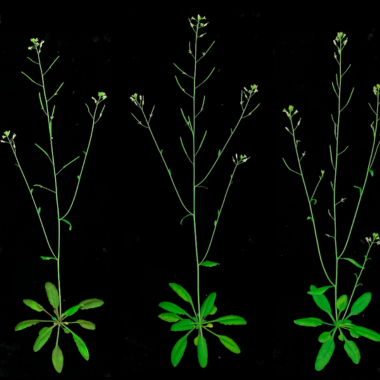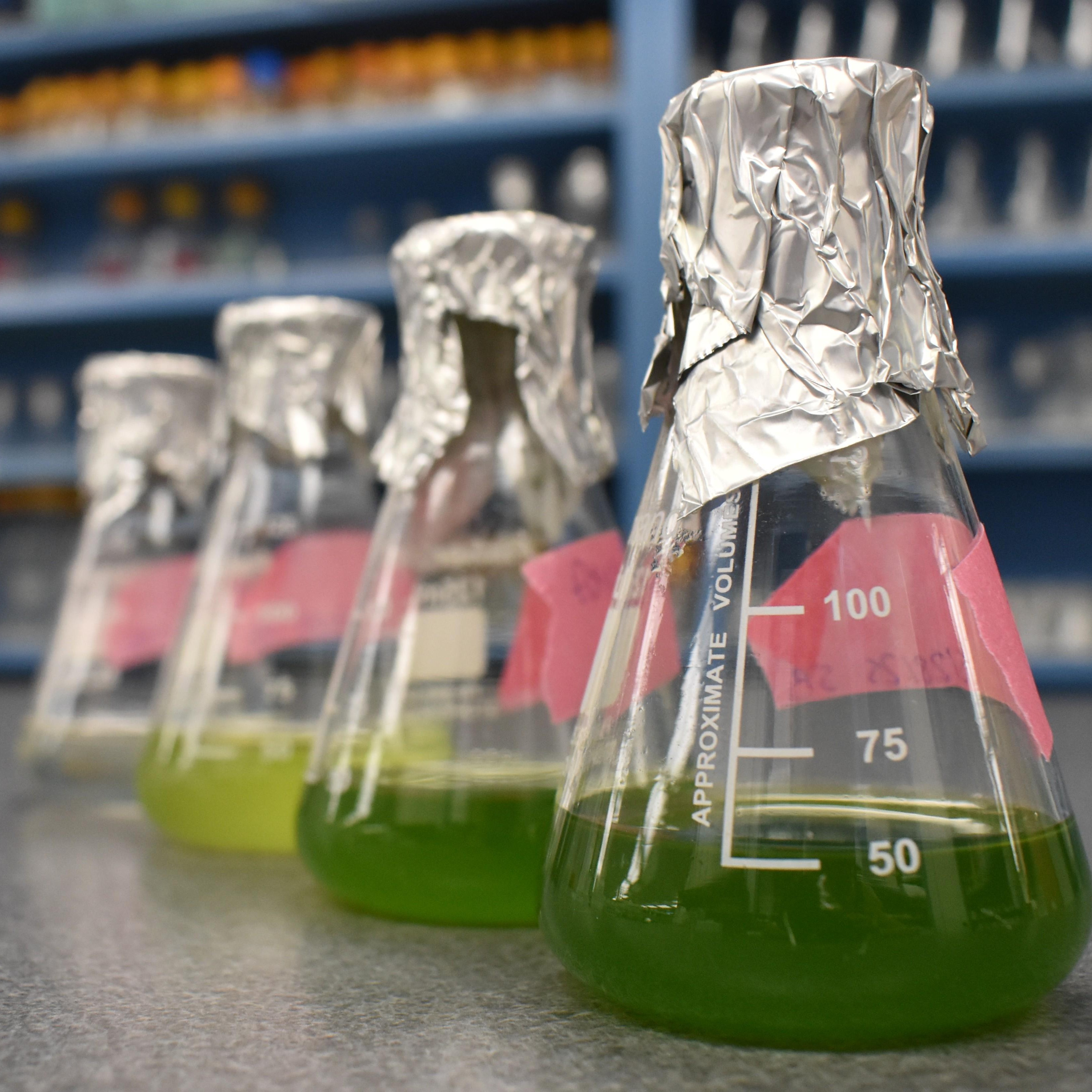Recruiting the next generation of plant scientists at ABRCMS
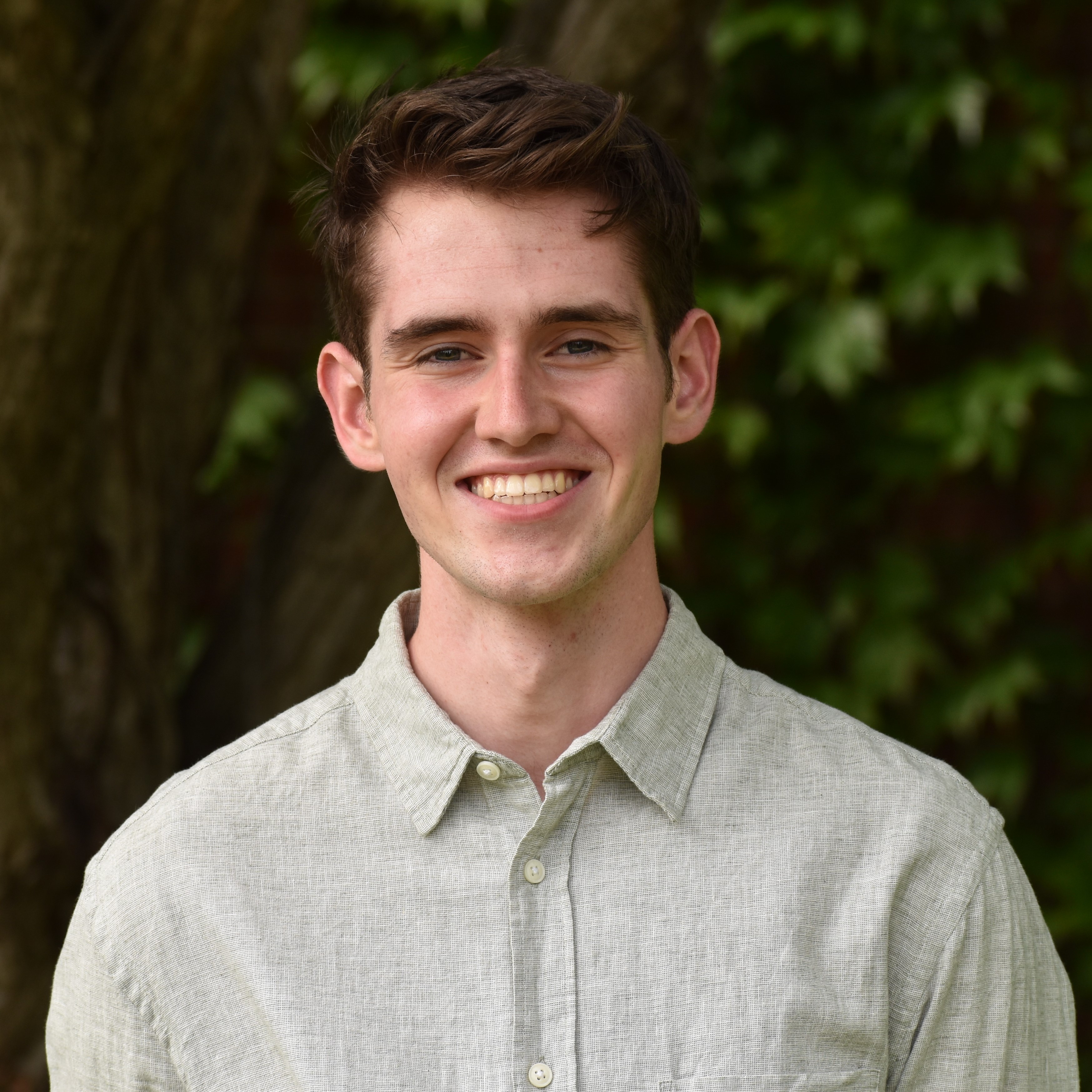
By Kara Headley
Lucas Reist, a graduate student in the Cell & Molecular Biology and Molecular Plant Science, or MPS, programs attended the 2023 Annual Biomedical Research Conference for Minoritized Scientists, or ABRCMS, in Phoenix, Arizona.
Reist helped staff a booth shared by MPS, MSU Plant Resilience Institute and the Plant Science Integrated Training Ecosystem. He was there to network with undergraduate students and discuss opportunities at MSU in the plant sciences and for graduate school. As ABRCMS is primarily a conference attended by undergrads, Reist’s role was to reach these undergrads and help establish MSU as a place to come for graduate school.
“There were quite a number of people that were specifically interested in plant science, despite it being a biomedical research conference,” said Reist, a member Bjoern Hamberger’s lab. “It was really great outlining the different programs, departments and opportunities that are here that center around plant science.
“Looking at it from a recruitment standpoint, it felt really great to be able to act as a messenger of the opportunities we have at MSU,” Reist continued. “It made me feel as though I was contributing toward the overall directive or goal of removing obstacles from underrepresented and minoritized students.”
He attended a few sessions on genetic engineering and plant resilience but focused his time on interacting with students and discussing one on one with them.
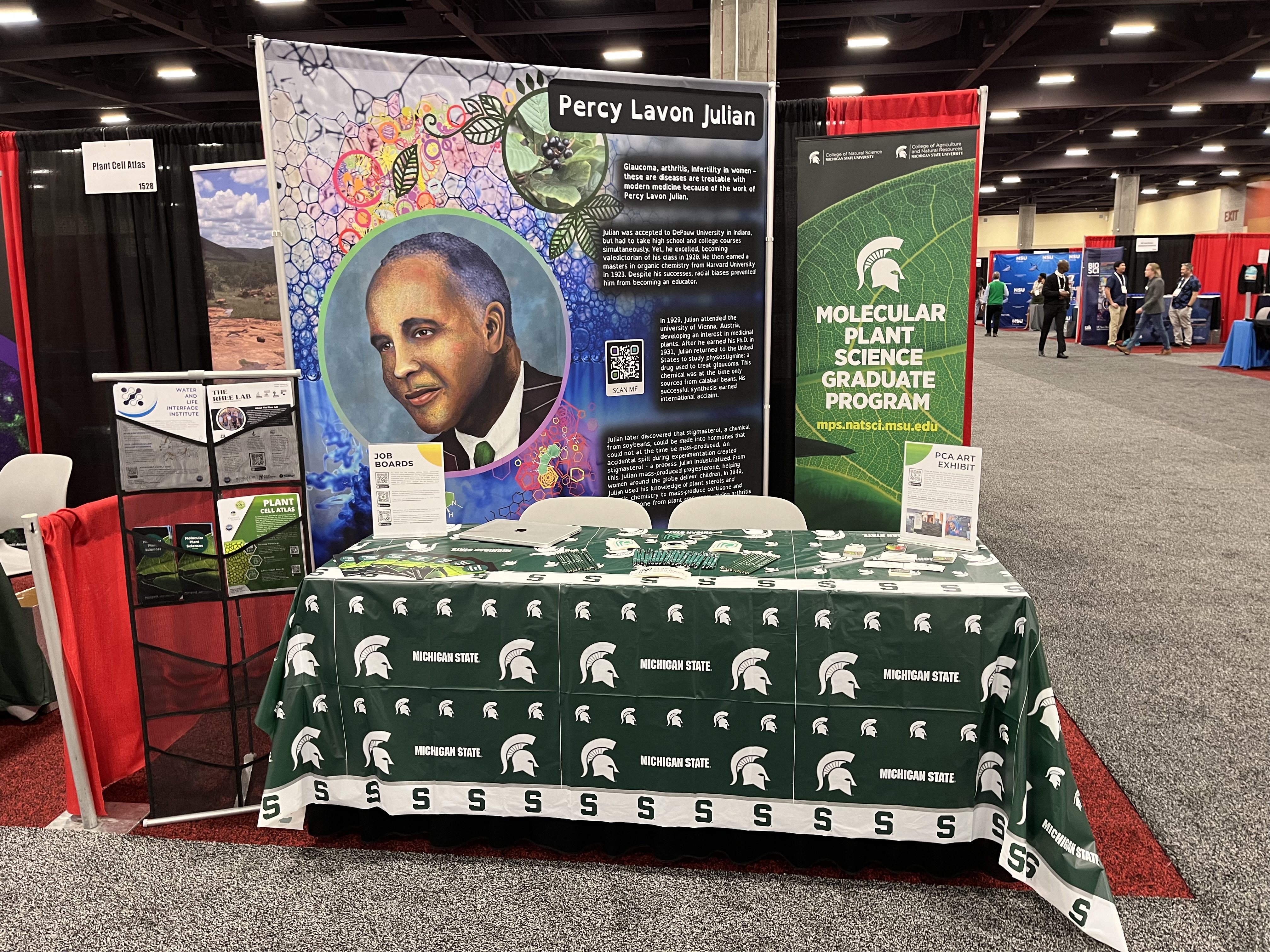
By Caleb Hess
ABRCMS was established in 2001 by the American Society for Microbiology to “was founded to encourage minority, first-generation, veteran, and disabled students to pursue higher education in STEM,” according to the website.
“Besides the simple fact of increasing diversity, the removal of inherent biases is really important for academia,” Reist said. “Specifically talking about science, it’s always impossible to fully understand everything about your subject area and having a more diverse set of people that you can draw information from is important, even if it’s something that’s as simple as say, the plant you’re interested in isn’t native to the region you are from. Others can paint a more holistic picture about something that you probably wouldn’t necessarily fully understand with biases from both an inherent but also an informational standpoint.”
This trip was made possible by a three-year grant MPS received from the MSU Graduate School, the Prospective Doctoral Student Recruitment and Retention Program.
Jianping Hu, director of the MPS program, has stated her excitement to work with the Graduate School.
“We hope this three-year plan will establish a sustainable framework for the recruitment and professional development of a diverse doctoral cohort within the MPS program in years to come,” she said.
Banner by Caleb Hess

